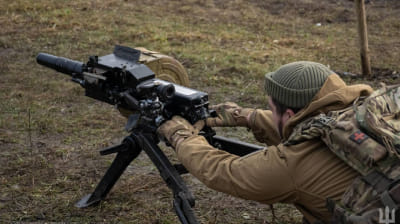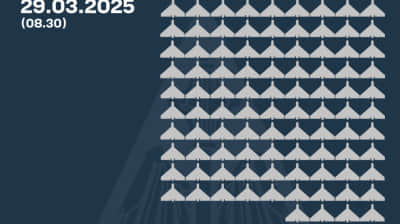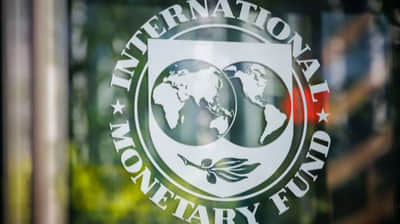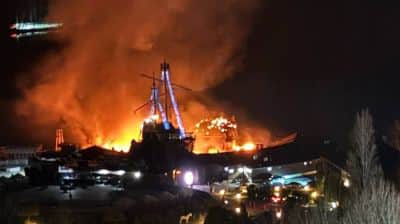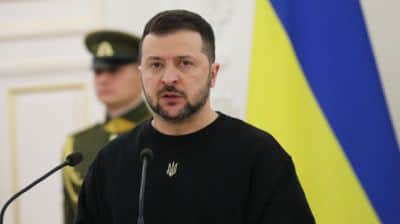ISW analyses Putin's so-called "theory of victory" regarding war against Ukraine
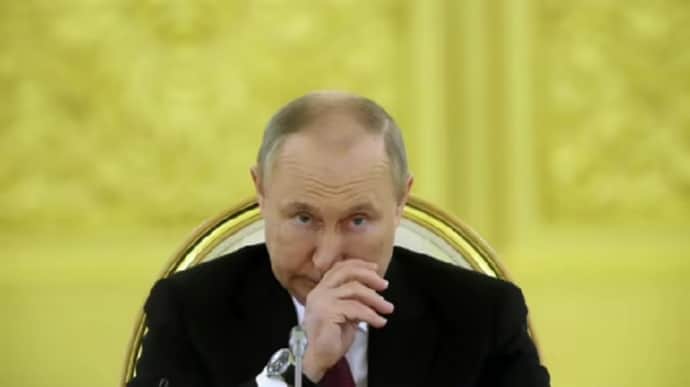
Analysts at the Institute for the Study of War (ISW) have noted that Russian leader Vladimir Putin is trying to promote his "theory of victory", which is focused on a war of attrition in Ukraine.
Source: ISW
Details: On 7 June, Russian leader Vladimir Putin articulated a theory of victory in Ukraine that relies on several key assumptions: that Russian forces can continue making gradual advances indefinitely, that Ukraine will be unable to conduct successful, significant counteroffensive operations, and that Russia can ultimately win a war of attrition against Ukrainian forces.
Following his speech at the St Petersburg International Economic Forum (SPIEF), Putin stated that Russia does not need to conduct another call-up of reservists similar to the partial mobilisation in September 2022. He explained that this is because Russia is not attempting to rapidly achieve its military objectives in Ukraine. Putin acknowledged that the current Russian military contingent committed to the war in Ukraine – reportedly the entire combat-capable ground force as of January 2024 – would be insufficient for a swift victory. However, he suggested that Russian forces are instead pursuing a more gradual approach.
Putin asserted that Russia's ongoing recruitment efforts, which he referred to as "crypto-mobilisation", are sufficient for this gradual strategy. He noted that Russia has recruited 160,000 new personnel so far in 2024, a figure that aligns with reports indicating the Russian military recruits between 20,000 and 30,000 new soldiers per month.
Putin's belief that gradual Russian gains will allow Russia to achieve its goals in Ukraine is based on the assumption that Ukrainian forces will be unable to reclaim any significant territory seized by Russian forces. Additionally, he assumes that the Russian military will be able to sustain offensive operations and achieve incremental tactical gains despite incurring heavy losses.
This assessment has been reinforced by recent months of delayed Western security assistance and corresponding constraints on Ukrainian materiel. These delays have allowed Russian forces to seize and maintain the initiative across the theatre and to conduct consistent offensive operations throughout Ukraine’s east, resulting in gradual tactical gains.
To quote the ISW’s Key Takeaways on 7 June:
- Russian leader Vladimir Putin articulated a theory of victory in Ukraine on 7 June that assumes that Russian forces will be able to continue gradual creeping advances indefinitely, prevent Ukraine from conducting successful operationally significant counteroffensive operations, and win a war of attrition against Ukrainian forces.
- Putin's theory of victory rests on Russia's ability to outlast and overcome pledged Western security assistance to Ukraine and Ukrainian efforts to mobilise more of its economy and population for the war effort, indicating that Putin likely assesses that Russian forces will be able to leverage their advantages in manpower and materiel to overwhelm on Ukrainian forces.
- Putin's theory of victory hinges on a critical assumption that the West will abandon Ukraine to Russian victory, either on its own accord or in response to Russian efforts to persuade the West to do so, and it is far from clear that the West will do so.
- Putin indirectly indicated that Ukrainian strikes on Russian territory with Western-provided weapons do not cross a supposed Russian "red line" that would result in Russian nuclear escalation.
- Putin heavily focused on proposals to solve Russia's labour shortage issues during his speech at SPIEF on 7 June.
- Putin attempted to frame Russia's economic issues in a positive light, likely to prepare Russian citizens to make more personal sacrifices as Russia sustains a protracted war in Ukraine at the expense of Russian citizens’ standards of living.
- Putin continued efforts to portray Ukrainian President Volodymyr Zelenskyy as an illegitimate president and identified the Ukrainian Verkhovna Rada (parliament) as a legitimate actor with which the Kremlin can negotiate instead of Zelenskyy. Putin’s recent statements are the latest in a series designed to obfuscate the legality of Zelenskyy's extended term by misrepresenting the Ukrainian Constitution and Ukrainian laws.
- Putin attempted to introduce his children and the children of other senior Russian officials to the public sphere at SPIEF, likely to set conditions for them to eventually assume high-profile and powerful roles in the Russian government.
- Pranay Vaddi, US National Security Council Senior Director for Arms Control, Disarmament, and Nonproliferation, stated that the US has prepared a new nuclear weapons policy specifically to deter Russia, the People's Republic of China (PRC), North Korea, and Iran.
- The US Department of Defense (DoD) announced a US$225 million security assistance package for Ukraine on 7 June.
- French President Emmanuel Macron announced on 6 June that France will provide Ukraine with an unspecified number of Mirage 2000-5 fighter jets and equip and train a brigade of 4,500 Ukrainian soldiers.
- The Russian Supreme Court declared an organisation that does not exist as "extremist" on 7 June, consistent with previous ISW assessments that Russia seeks to expand the legal definition of "extremism" to increasingly prosecute domestic anti-war sentiment.
- Russian forces recently advanced near Svatove, near Chasiv Yar, and north-west of Avdiivka.
Support UP or become our patron!

